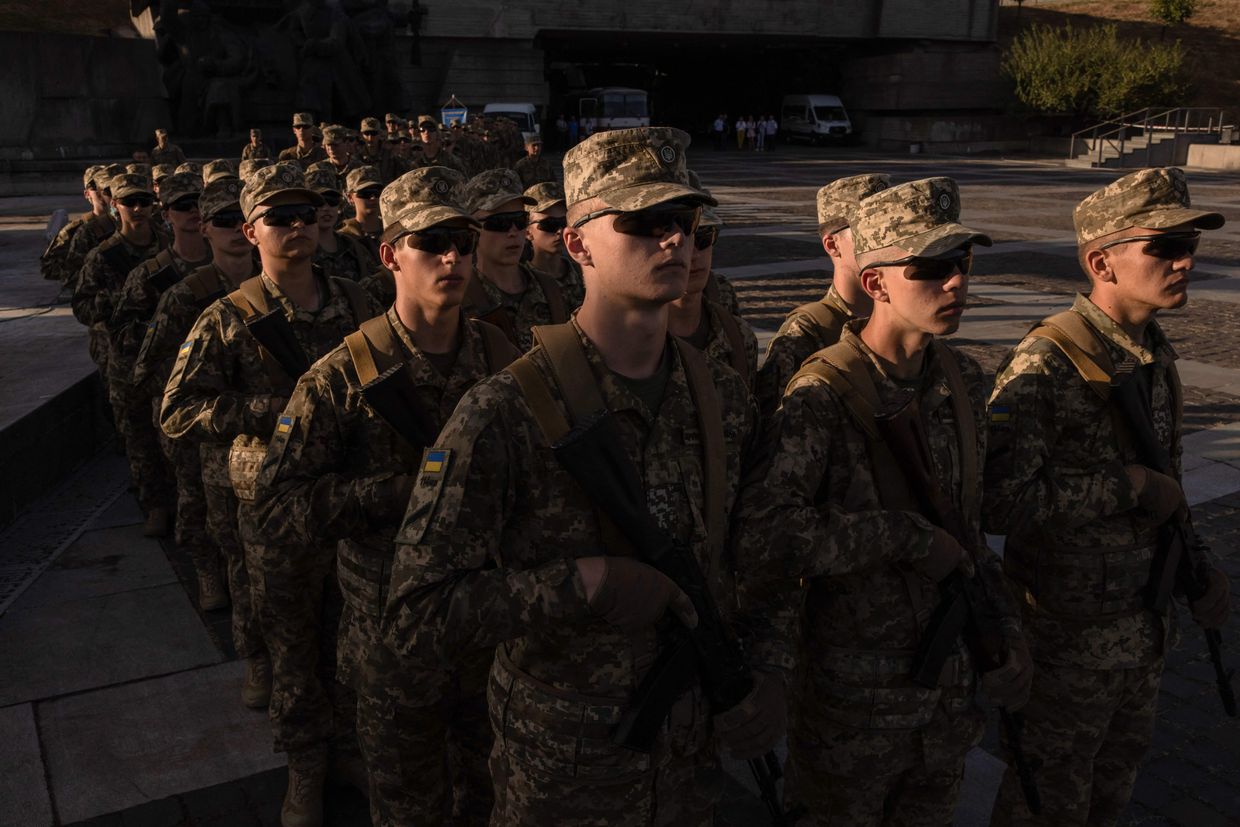Trump has the economic tools to end Russia’s war. He should use them
Trump can end Russia’s war — if he wields economic pressure effectively.

U.S. President Donald Trump speaks at the National Prayer Breakfast at the Washington Hilton in Washington, D.C., on Feb. 6, 2025. (Andrew Harnik / Getty Images)
There are still many questions about what to expect from the Trump administration’s approach to ending Russia’s war in Ukraine. With some in Congress questioning continued military aid and loans for Ukraine, the application of economic statecraft measures —such as sanctions, export controls, and tariffs — could be used more aggressively to push for Russia's withdrawal.
Sanctions were a key tool in the first Trump administration’s foreign policy strategy. However, we've heard little about how a second-term Trump administration plans to leverage them. Recently, U.S. President Donald Trump warned Russian President Vladimir Putin that new tariffs and sanctions would be imposed on Moscow if it didn’t reach a deal to stop the war. With so many rounds of sanctions already imposed by the United States and its broad multilateral coalition, what options remain?
Two key levers could help achieve the ultimate goal of this pressure campaign: further disrupting Russia’s energy trade and tightening restrictions on dual-use goods flowing to Russia through third countries that support its military.
"Two key levers could help achieve the ultimate goal of this pressure campaign."
First, a more aggressive use of secondary sanctions could prove effective. Secondary sanctions, which force countries to choose between doing business with the U.S. or with sanctioned entities, were instrumental in bringing Iran to the negotiating table for the Joint Comprehensive Plan of Action (JCPOA). Secondary sanctions on Russia, imposed by then-U.S. President Joe Biden in December 2023, have begun to take effect. It is conceivable that a second Trump administration could use this tool to pressure unaligned countries — including some current U.S. allies — to align with American objectives.

More aggressive threats of cutting off access to the U.S. economy for entities in countries such as India, China, Turkey, and Middle Eastern nations — where businesses continue trading with Russia while maintaining ties with the U.S. and its allies — could be considered. Even amid debates over continued aid to Ukraine, increasing pressure on these nations to stop their companies from purchasing Russian energy products or facilitating the flow of dual-use items to Russia could be an effective strategy with limited cost to American taxpayers.
Second, lessons from previous sanctions campaigns show that aggressive enforcement serves as an additional stick to influence corporate decision-making. At one point, fines for sanctions violations reached upward of $9 billion. While enforcement should not be politicized, prioritizing cases against well-known violators of Russia sanctions could have a strong deterrent effect on those skirting the rules.
Some have suggested easing certain sanctions to incentivize Russia to negotiate. However, this approach would likely be ineffective in changing the trajectory of the war, as Putin responds only to force. Trump has made no secret of his willingness to use the U.S. economic statecraft toolkit to achieve policy objectives. Ending the war is a bipartisan priority, but more importantly, Russia must not be allowed to win — otherwise, other countries could face a similar fate.
When it comes to Russia, Trump should leverage the considerable economic power at his disposal to remind those doing business with both Russia and the U.S. that access to American markets is a privilege, not a right. Given the choice between access to the U.S. economy and trade with Russia, many countries would quickly opt for the former. A firm stance on economic pressure could accelerate an end to the conflict and reinforce American leadership on the world stage.
Editor’s Note: The opinions expressed in the op-ed section are those of the authors and do not necessarily reflect the views of the Kyiv Independent.










